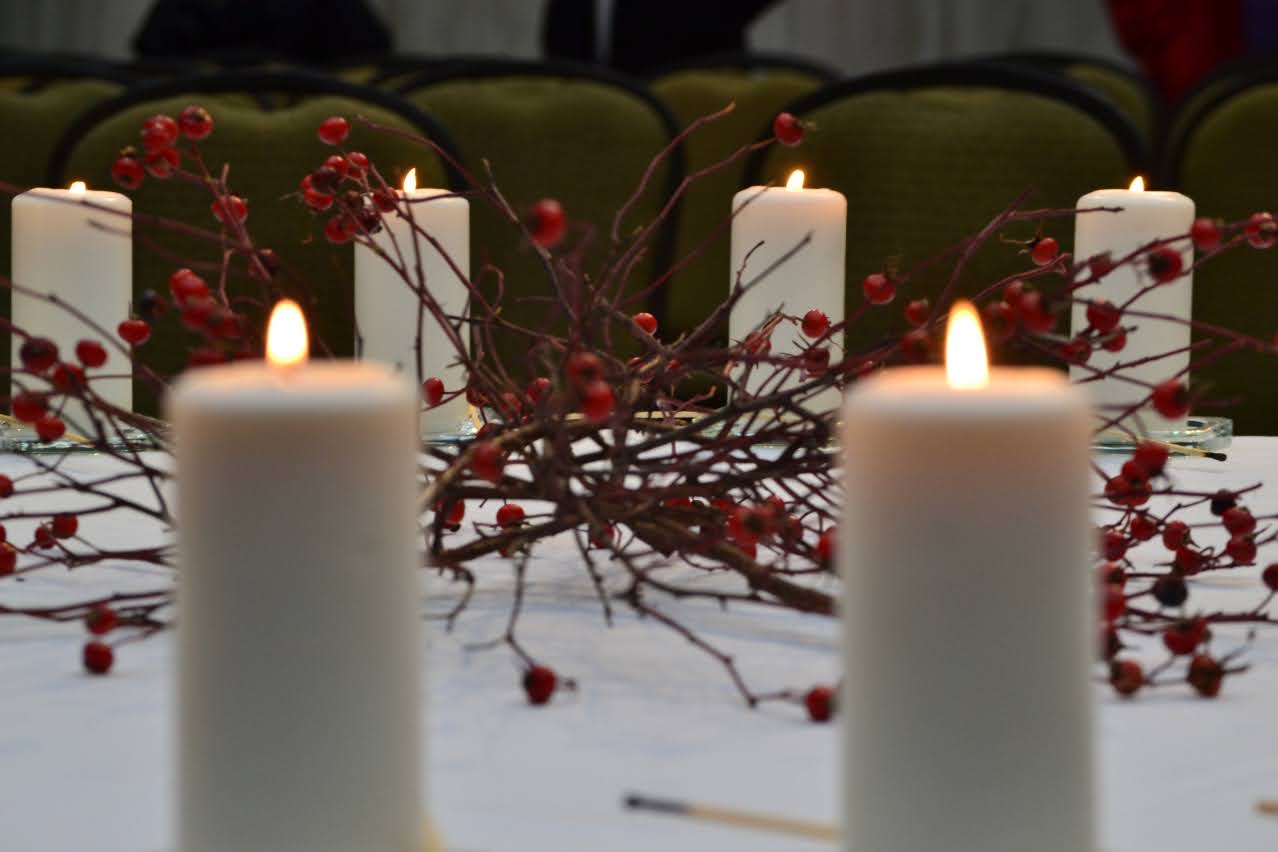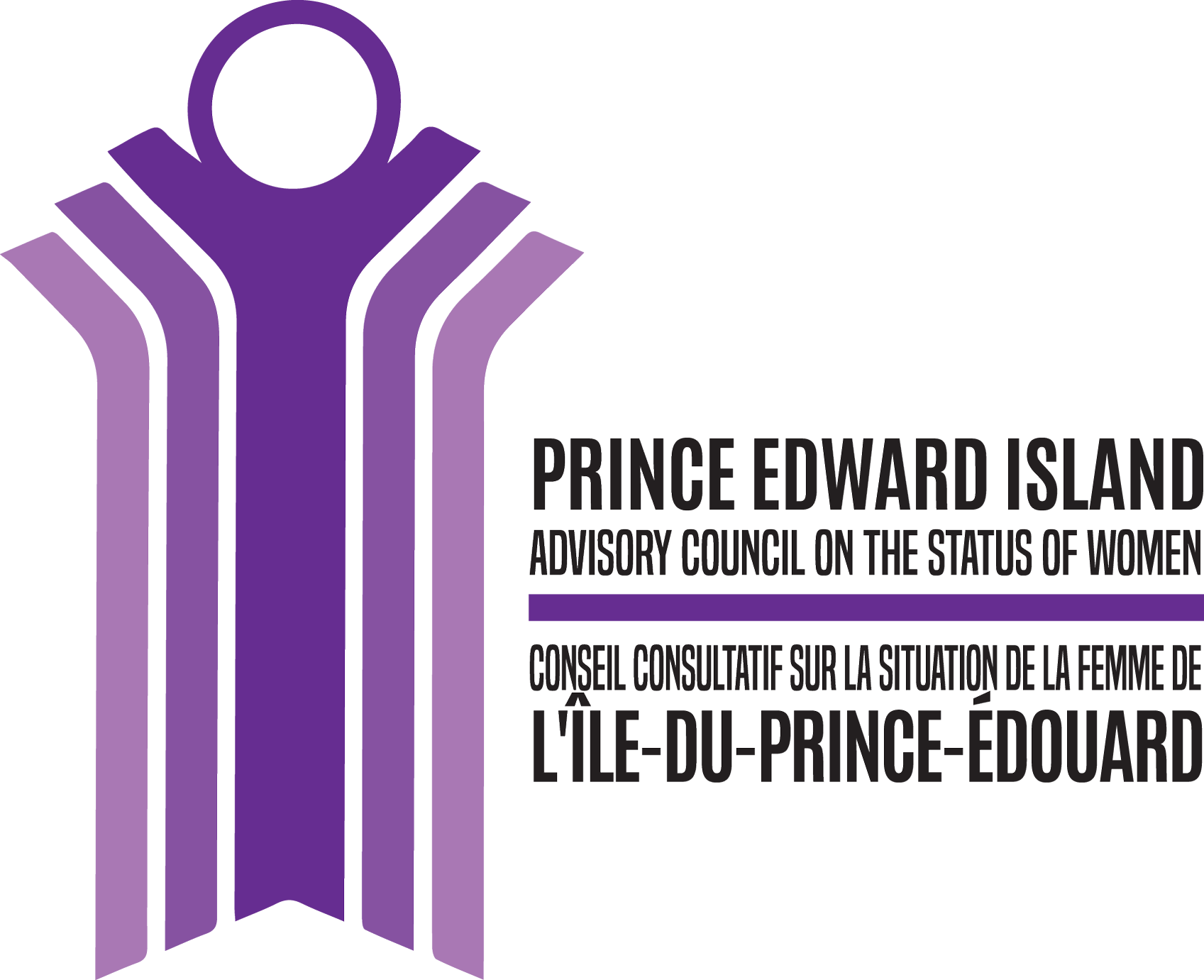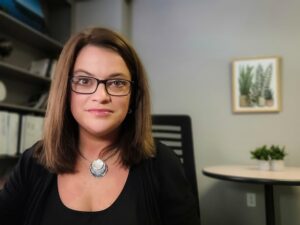Jayelee Grady, Manager of Victim Services PEI, was the guest speaker at the December 6 Montreal Massacre Memorial Service.
Good afternoon, Kwe, Bonjour.
Thank you so much to the PEI Advisory Council on the Status of Women for inviting me to speak here today, and thank you all for attending.
For those of you who may not know me, I have been a social worker here in Prince Edward Island for over 22 years, working in various sectors including Child Protection, Mental Health and Addictions, and, currently, Victim Services. Throughout my career, I have had the privilege of working with numerous organizations and departments that respond to gender-based violence. More importantly, I have had the honor of working directly with many individuals and families who have been impacted by this violence.
The consequences of gender-based violence can be devastating in many ways. While the loss of life is the most tragic outcome, the emotional and psychological toll of surviving an abusive environment is also very profound. Survivors often lose the ability to live freely, constantly fearing what might happen next. The anxiety, hypervigilance, and trauma can rob a person of their sense of security and control—wounds that last far beyond broken bones or bruises, affecting their well-being, relationships, and opportunities for the future.
And it’s not just the survivor who is affected. We know that gender-based violence impacts families, friends, coworkers, and service providers. It impacts our healthcare system, our social supports, and our economy. Even if you’ve never been a direct victim, violence affects all of us. We are all impacted when our loved ones, our colleagues, or our community members are oppressed, silenced, or harmed.
Change begins when we pay attention, listen, and respond. When we refuse to stay silent or indifferent. When we offer compassion and empathy. When we work together to create safe spaces and healthy communities.
We know that collaboration doesn’t always require formal structures or meetings. It starts with shared values, with an appreciation for what each person or organization can bring to the table. When two or more people share a common vision– when they understand their complementary roles–the possibility for change occurs.
We’ve seen this firsthand with multidisciplinary teams, where different organizations, community groups, social programs, health professionals, law enforcement, and survivors—come together to respond to violence. It’s when we combine knowledge and resources from various fields that we can create the most meaningful impact.
Coordinated responses don’t just improve service delivery, they reduce the retraumatizing experience for survivors who often find themselves navigating fragmented and confusing systems. Through coordinated responses, we can offer better access to supports for vulnerable populations and create spaces where survivors feel heard, respected, and in control of their own lives.
But this doesn’t stop at intervention. It is just as important to focus on prevention—at every stage of life. Schools, workplaces, community organizations, and faith groups all have an important role to play in promoting gender equality and healthy relationships. Together, we can dismantle oppressive systems.
Violence thrives on silence and secrecy. We know that deeper systemic issues—like harmful gender norms, discrimination, and inequality—create barriers to change.
Real change requires us to challenge the systems that perpetuate harm. But we cannot forget that survivors are central to this work. Survivors, and their families, hold invaluable knowledge about the barriers and gaps that exist in the systems designed to help them. Their voices must guide our interventions and shape the strategies we put in place.
Whether we are developing individual safety plans, prevention efforts, or intervention strategies, we need to ensure that we are actively listening to those with lived experience. Without their input, any effort is incomplete.
We must prioritize responses that emphasize trust, respect, autonomy, and safety. Survivors need to feel heard, believed, and empowered to take control of their own healing journey.
This work may seem overwhelming. The root causes are complex and the effects on survivors are deep and long-lasting. The good news is that we all have a role to play. Each of us can make a difference.
You can start by modeling respectful behavior in your daily interactions. You can speak up when you hear inappropriate comments. You can educate others, whether through conversations, workshops, or simply sharing what you’ve learned. You can challenge policies and practices that inadvertently support harmful systems.
You can uplift the voices of victims and survivors, ensuring that their stories are heard and that their needs are met. You can critically examine how your words and actions impact others, especially those who may be experiencing or perpetrating violence. And most importantly, you can make space for compassion.
When we come together—when we act together—we can create lasting change.
There is always hope.
We’ve seen communities rise up in support of families and survivors. We’ve seen individuals discover their own strength and recognize strength in others. When we collaborate, when we unite our efforts, we become a powerful force for change.
Together, we can make a difference. Together, we will break the cycle of violence.
by Jayelee Grady
Guest Speaker
December 6, 2024 Montreal Massacre Memorial Service




